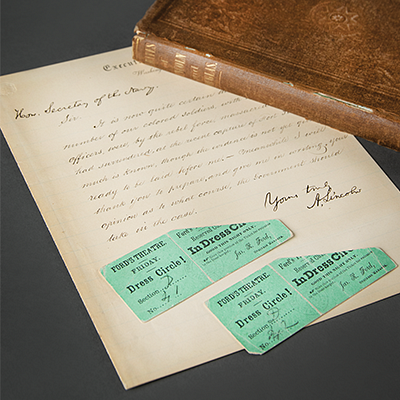Haym Salomon and Robert Morris Rare Signed Bill of Exchange for Financing the Revolutionary War
Two ways to bid:
- Leave a max absentee bid and the platform will bid on your behalf up to your maximum bid during the live auction.
- Bid live during the auction and your bids will be submitted real-time to the auctioneer.
Bid Increments
| Price | Bid Increment |
|---|---|
| $0 | $5 |
| $50 | $10 |
| $200 | $25 |
| $500 | $50 |
About Auction
Sep 23, 2023
RR Auction support@rrauction.com
- Lot Description
Exceedingly rare partly-printed DS, in French, signed “Haym Salomon" and "Rob't Morris, S. I. of Finance,” one page, 9 x 4.25, March 27, 1782. A fourth bill of exchange issued in Philadelphia, Pennsylvania, to Haym Saloman for 3000 Livres Tournois, payable at the Grand Bank of Paris, with the upper right annotated "Pour Compte des Estats Unis de L’Amerique." Signed at the conclusion by Robert Morris as the Superintendent of Finance, and countersigned on the reverse by Salomon. In fine condition, with fold separations repaired and reinforced by complete silking on the reverse. Accompanied by a full letter of authenticity from PSA/DNA. An extraordinary historic American financial instrument coveted equally by autograph specialists, numismatists, and historical enthusiasts.
Exchanges of this type were the method used when unpredictable modes of transportation were used to ship the exchange forms domestically and abroad, often on multiple vessels in case of loss or capture. In nearly all cases with American bills of exchange such as this, the ‘First’ was usually paid, redeemed, or retired before any subsequent ones would be redeemed. Copious record-keeping was necessary and paying out a rich sum like this was taken seriously at all points of potential redemption. Additionally, such instruments were issued to pay the interest of the domestic debt of the United States and to allow it to draw on its gold reserves in Europe to raise immediate specie in order to purchase supplies and prosecute the War for Independence. Such bills of exchange ‘were the eighteenth-century equivalent of modern checks; they enabled persons having funds available in other places to raise money for local use’ (Edgar J. McManus, in American National Biography).
The bills would be sold, usually at a discount, to merchants, financiers, and patriots. The most significant of the ‘bill brokers’ was Haym Salomon (1740-1785), who was born in Lissa, Poland, and emigrated to New York City shortly before the outbreak of the Revolution. He acted as a secret agent against the British in occupied New York, was arrested twice, and condemned to death, before bribing his way out of prison and fleeing to Philadelphia. He re-established his brokerage firm and became the principal bill broker for Hopkinson and then for Superintendent of Finance Robert Morris. Salomon, who was fluent in French, essentially acted as paymaster general for Rochambeau, and advanced money to army officers and Congressional delegations. He also personally advanced funds to members of the Continental Congress (including James Madison) and other federal officers, charging interest and commissions well below the market rates. Salomon also played a prominent role in the Philadelphia and national Jewish community affairs. In 1783, Salomon and other prominent Jewish Philadelphians addressed the Pennsylvania Council of Censors to request the removal of a religious test oath required for office-holding under the state constitution.
His health compromised by his imprisonment by the British, Salomon died in January 1785, holding more than $350,000 in depreciated Continental currency and heavily discounted government notes and securities; the market value of his estate was about twelve cents to the dollar. The Pennsylvania Packet mourned him as ‘an eminent broker‰Û_remarkable for his skill and integrity in his profession and for his generous and humane deportment.’ - Shipping Info
-
Bidder is liable for shipping and handling and providing accurate information as to shipping or delivery locations and arranging for such. RR Auction is unable to combine purchases from other auctions or affiliates into one package for shipping purposes. Lots won will be shipped in a commercially reasonable time after payment in good funds for the merchandise and the shipping fees are received or credit extended, except when third-party shipment occurs. Bidder agrees that service and handling charges related to shipping items which are not pre-paid may be charged to a credit card on file with RR Auction. Successful international Bidders shall provide written shipping instructions, including specified Customs declarations, to RR Auction for any lots to be delivered outside of the United States. NOTE: Declaration value shall be the item’(s) hammer price and RR Auction shall use the correct harmonized code for the lot. Domestic Bidders on lots designated for third-party shipment must designate the common carrier, accept risk of loss, and prepay shipping costs.
-
- Buyer's Premium



 EUR
EUR CAD
CAD AUD
AUD GBP
GBP MXN
MXN HKD
HKD CNY
CNY MYR
MYR SEK
SEK SGD
SGD CHF
CHF THB
THB












